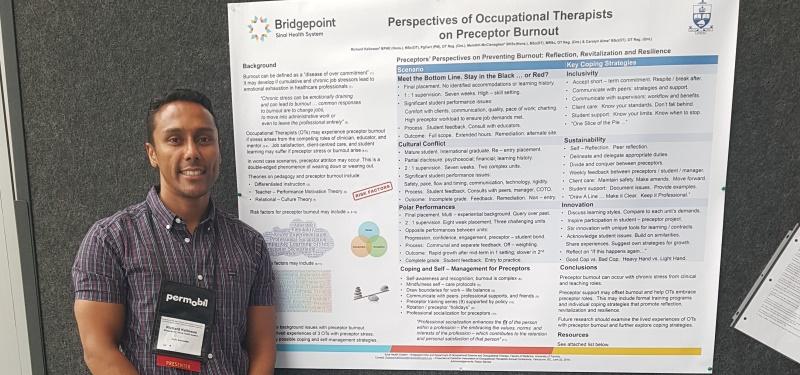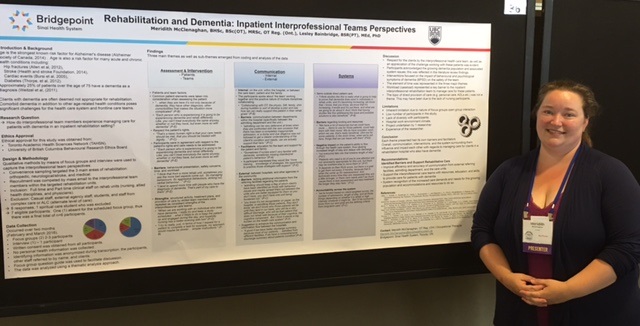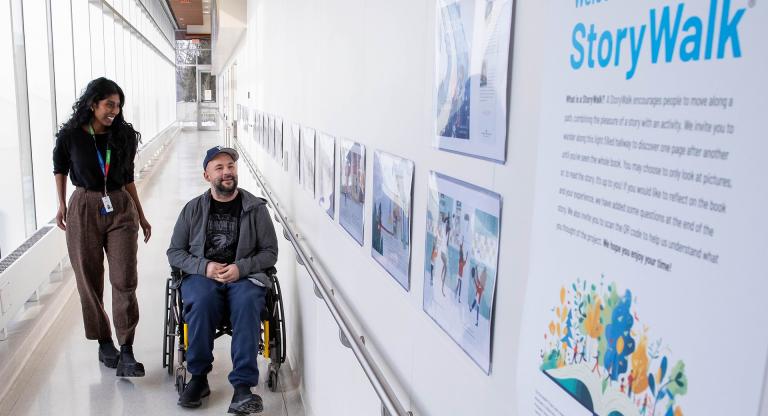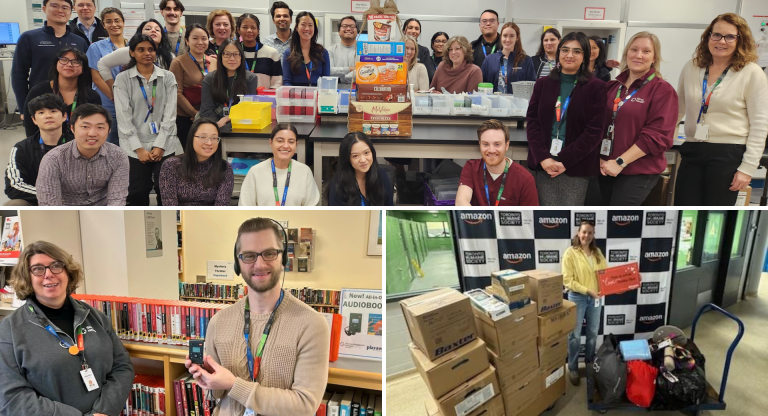Bridgepoint Occupational Therapists travel across Canada and beyond in pursuit of sharing knowledge and learning

Clients with complex medical needs often have unique and challenging issues for their rehabilitation and discharge plans.
Richard Kellowan and Meridith McClenaghan, Occupational Therapists at Bridgepoint, have embraced and responded to these challenges by actively seeking out evidence-based answers and sharing their knowledge with others.
Each year for the past seven years, Richard and Meridith have entered posters or presented at the podium for the annual Canadian Association of Occupational Therapists conference, travelling from coast to coast. Since 2009, they’ve also travelled to a European conference held every two years in Dublin, Ireland.
“The posters and presentations are based on real-life issues we see in our practice. Things we may have struggled with and need or want to explore more,” says Richard. “We’re very passionate about the topics we choose because these projects are about learning and growing so we can provide the best care for our patients. We develop our topics by combining literature reviews, theoretical models, clinical reflection and sometimes, formal studies with research students or projects related to our own post-graduate studies.”
One example from a few years ago was a poster on hospital relocation inspired by Bridgepoint’s move into its new building. “We were able to make recommendations about supporting patients during a hospital move, share clinical lessons learned and resources,” says Meridith.
This year, Richard and Meridith presented six topics at two different conferences, including a poster on enabling airline travel for wheelchair users. “We had both seen patients recently who were preparing to be discharged from the hospital and planned to travel home via airplane,” says Meridith. “When we conducted literature reviews the clinical information was detailed in some respects but lacking in others. It was, however very relevant and timely. We had great feedback about the poster from our colleagues at the conference.”
Meridith and Richard both note the many benefits of their work. “In addition to helping us in our everyday practice, these projects are a very meaningful way of meeting professional development requirements set by our college,” says Richard. “There’s a lot of engagement and exchanging ideas throughout the process. When we create our posters, we share them with our interdisciplinary teams across both sites and with faculty from the U of T Occupational Therapy and Physiotherapy Departments. We’ve gotten excellent feedback that challenges how we think on several levels. When we present our final versions at these conferences, we get to meet colleagues from across the country and beyond. It’s very affirming and very rewarding. Our peers have the same issues and often, arrive at the same answers. We can bring back what we’ve learned and share with our own practice groups.”
Richard and Meridith encourage any front-line employees to pursue conference presentations and other active learning opportunities. “I think there’s a misconception that posters are only for large or formal research studies or program evaluation,” says Meridith. “They’re also really great tools for investigating specific topics related to clinical practice, education, or professional practice.”
And if the process seems daunting at first, there’s always help available. “We’ve had a lot of support from the Health Sciences Library at Bridgepoint for database searches and article retrieval for our literature reviews. We’ve also had wonderful support from our Professional Practice Leaders, the Interprofessional and Allied Health Education Specialists and our home teams,” says Richard.
Meridith’s final piece of advice? “Pick a topic that you love and that resonates and work in a team,”
Richard adds in, “Once you get over that first presentation, your wheels spin faster and you really take off. I’d say go for it and don’t look back!”













